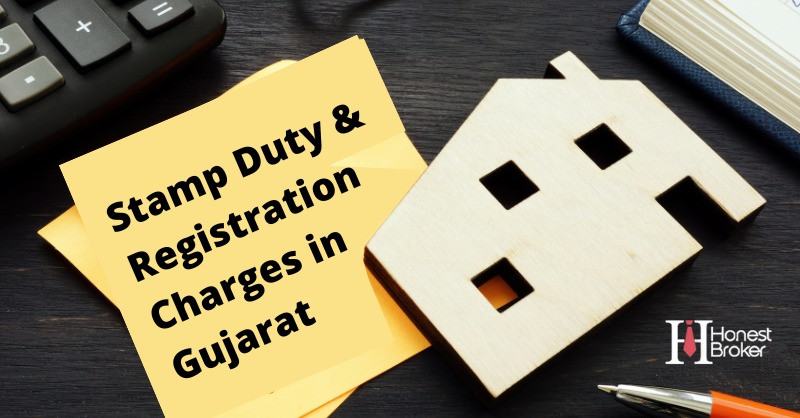 Blog
Blog
Stamp duty is a tax levied on property transactions when a seller sells his property to a third party, or a buyer buys some specific asset from a third party. As the state government levies stamp duty and registration charges, they vary region-wise in India, and the stamp duty in Gujarat is also different.
The rate of stamp duty on property is determined based on the property category, such as plot, agricultural land, etc. This article will provide information on how much stamp duty and registration are levied on various properties and documents in Gujarat.
Stamp Duty in Gujarat for Current financial year
Gujarat's state government levies stamp duty and registration charges in Gujarat under the Gujarat Stamp (Amendment) Act, 2018. The payment of stamp duty is mandatory for every citizen on property transfer between the two parties - the seller and the buyer. The buyer must pay the amount of stamp duty when registering his property.
As of 2022, the stamp duty in Gujarat has increased to 4.9% of the total property, while the registration charge is 1% for males only. Here, women are not required to give registration charges, and Gujarat's stamp duty and registration charges are explained in the table underneath.
Stamp Duty & Registration Charges in Gujarat, 2022
Stamp Duty on different types of deeds in Gujarat
Different percentages of stamp duty are levied on different types of deeds. For example, on sale deed or gift deed stamp duty is 6%, whereas on partnership deed stamp duty is ₹25. Let's see in the following table what percentage stamp duty has been imposed on which deed.
How can we calculate Stamp Duty for different types of properties?
The amount of stamp duty on the property varies state-wise. How is stamp duty calculated in Gujarat? We are clarifying this point with an example. Suppose there are two different properties in Gujarat worth Rs 30 lakh. A joint buyer purchases the specific properties by both a male and a female. So, the total stamp duty cost will be calculated in the manner shown below:
Stamp duty charges payable by male buyer = 30,00,000 x 4.9/100 = Rs 1,47,000
Here, registration charges = 30,00,000 x 1/100 = Rs 30,000
So, total cost of the property for male buyer is = Rs 30,00,000 + Rs 1,47,000 + Rs 30,000 = Rs 31,77,000
Now, Stamp duty payable by female buyer = 30,00,000 * 4.9/100 = Rs 1,47,000
The second female buyer being a woman is exempted from the registration fee.
So, the total cost of the property for female buyer is = Rs 30,00,000 + Rs 1,47,000 = Rs 31,47,000
Any tax benefits on Stamp Duty from the government
Gujarat property owners get tax benefits on stamp duty from the Gujarat government. This tax benefit is provided to the property owners under Section 80C of the Income Tax Act.
How can we stamp duty online?
Stamp duty in Gujarat can be paid online by the property owners. Using an online payment method, e-stamping, you can pay your stamp duty and registration charges on your purchased property. You can receive e-stamping certificates by visiting any taluka headquarter in any district of Gujarat. After paying the stamp duty online, your next step will be to pay to register your property under the Indian Registration Act.
How much time do we have to pay stamp duty, and what are the penalties we have to pay in case of delay?
There is no provision for stamp duty exemption. You must pay the stamp duty within about 30 days, and stamp duty must be paid on time. If you delay your stamp duty payment, you will be fined 2% to 200% of your total stamp duty amount.
What is the document required to pay Stamp Duty?
● Sale agreement and deed
● Identity proofs of the property buyer, such as PAN Card, Aadhar card, passport, driver's license, and so on
● Builder-buyer agreement on property transaction
● Proof of payment made of the property to the seller
● Khata certificate
● Original copy of a power of attorney,
What happens when you have not paid stamp duty?
Stamp duty bearing is mandatory in Gujarat. If you haven't paid your stamp duty while the property is transferred, your purchased property may be in legal dispute later, and you will have to pay a specific amount as a penalty.





